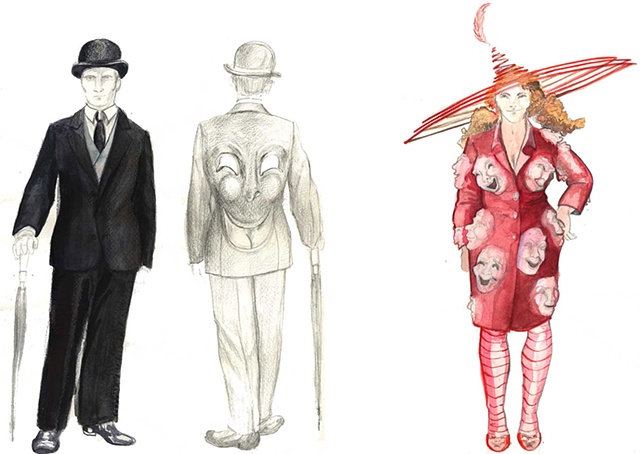SELECTION
PLATÉE
A "comédie lyrique" by Jean-Philippe Rameau (French, 1683-1764)
Yale School of Drama
Scenic and Costume design Project
See more in OPERA
Platée, an unattractive, yet nymphomaniac nymph, reigns over a kingdom of marsh creatures. To cure both Platée of her arrogance, and Juno, the queen of the gods, of her obsessional jealousy, Mercury (the messenger of the gods), plots a cruel trick.
With the help of Momus (the spirit of sarcasm), and Citheron, (a mortal), he sets Platée up with Jupiter - the king of the Gods and a notorious womanizer.
A mock wedding is held, to which Junon is secretly invited. She confronts her cheating husband but, when she lifts the bride’s veil, the joke is revealed, the Olympians ascend back to heaven, and Platée is left alone, piteous and ridicule.
Beyond the obvious farce and spectacle, the tale of Platée touches on a very baroque theme: the essential disconnect between nature and culture, the opposition of the raw, organic, distateful world of Platée, to the policed, sophisticated and cultivated world of the Gods. It seems to justify a class system that clearly separates the beautiful from the ugly, the aristocratic from the vulgar.
In searching for modern equivalents of the archetypes presented in the plot, I set the opera in a world where the icons of the trendy and glamorous world of art critics and movie stars are confronted with the unappealing realities of raw nature. Sophia Loren and Marcello Mastroianni meet the subjects of Diane Arbus' haunting photographs...
BACK TO OPERA
